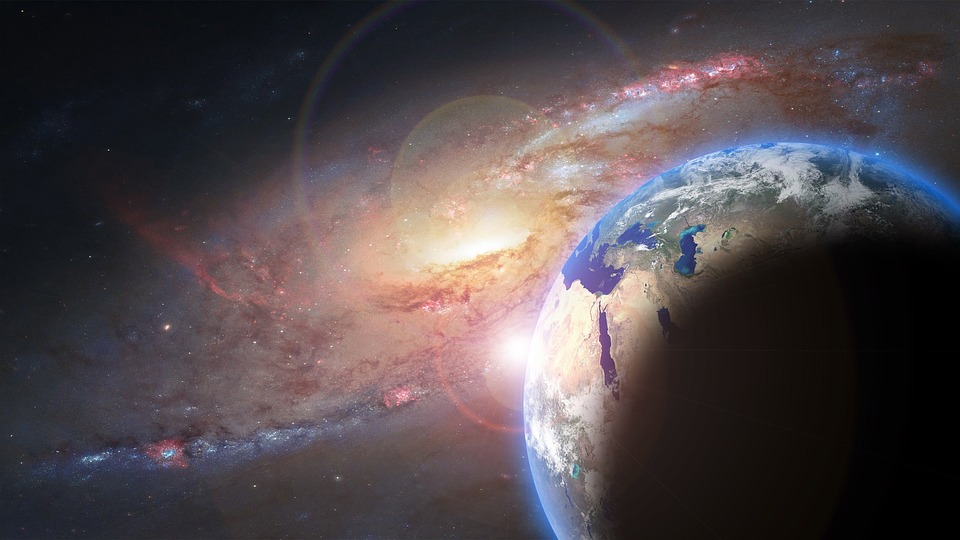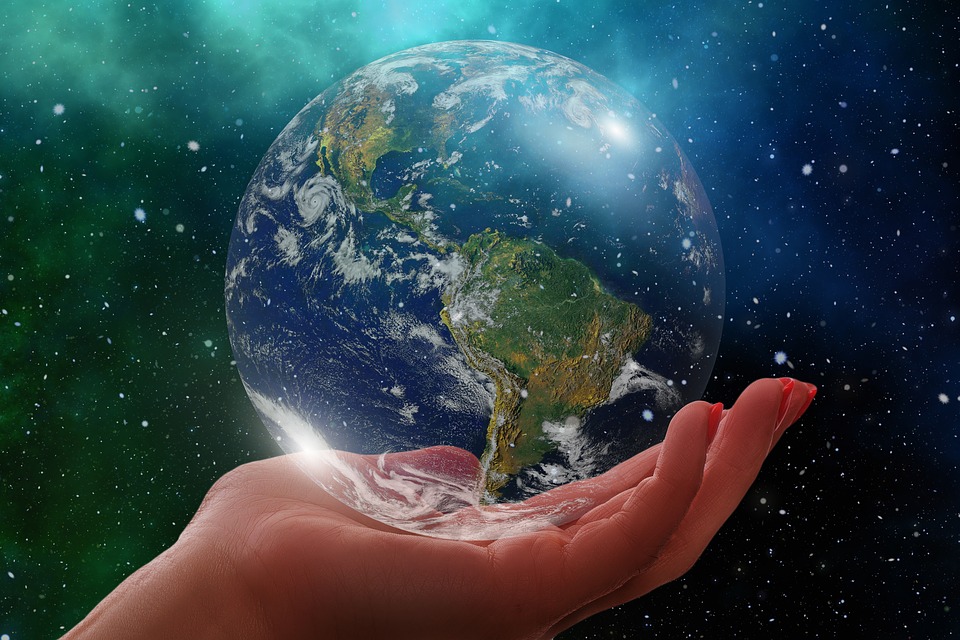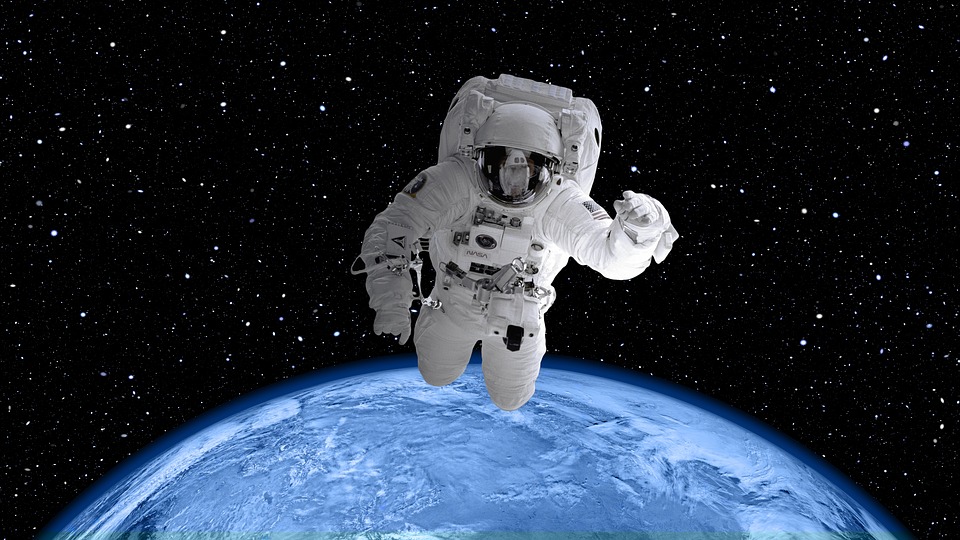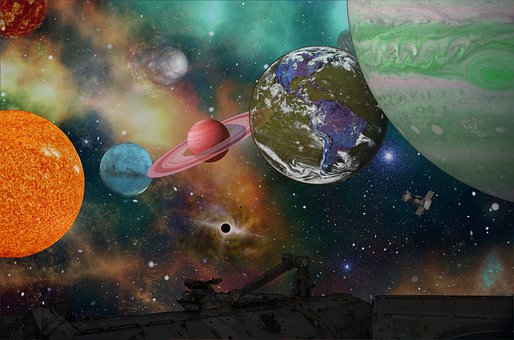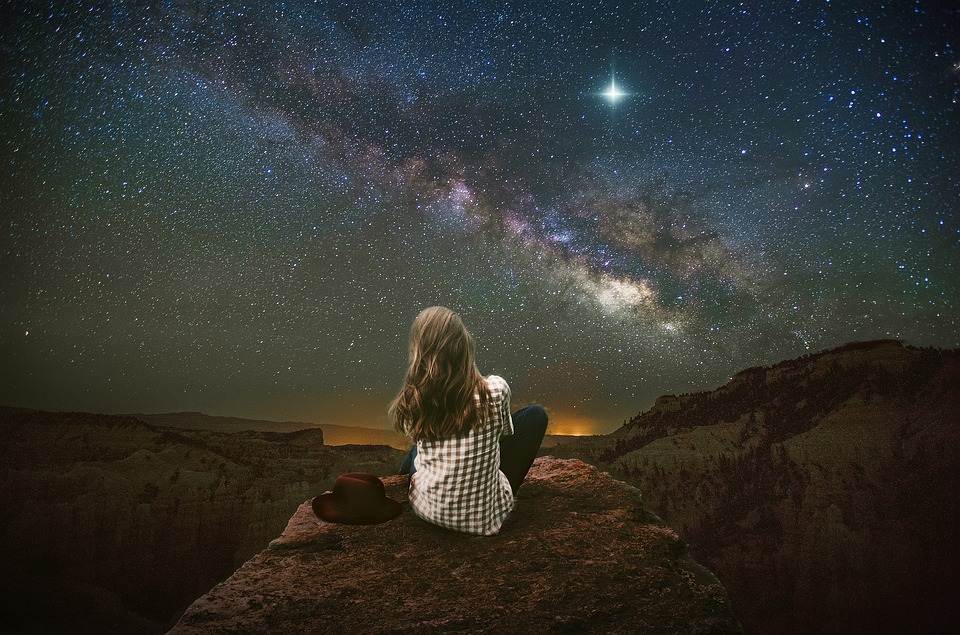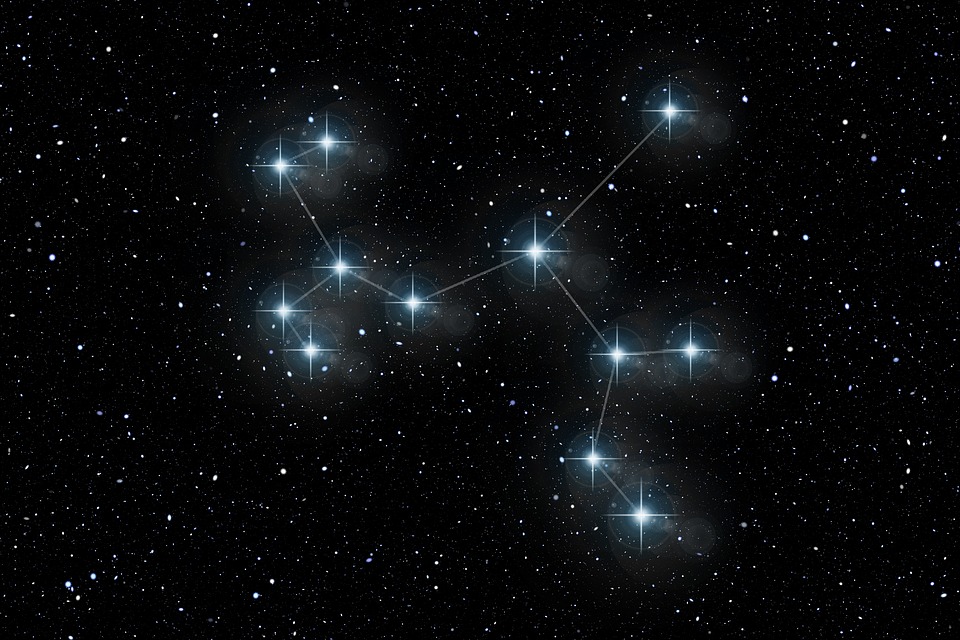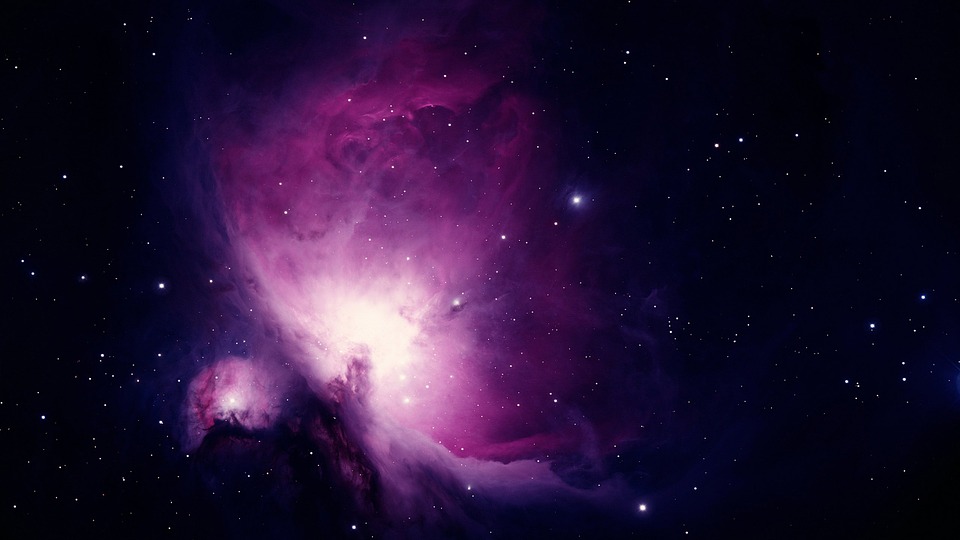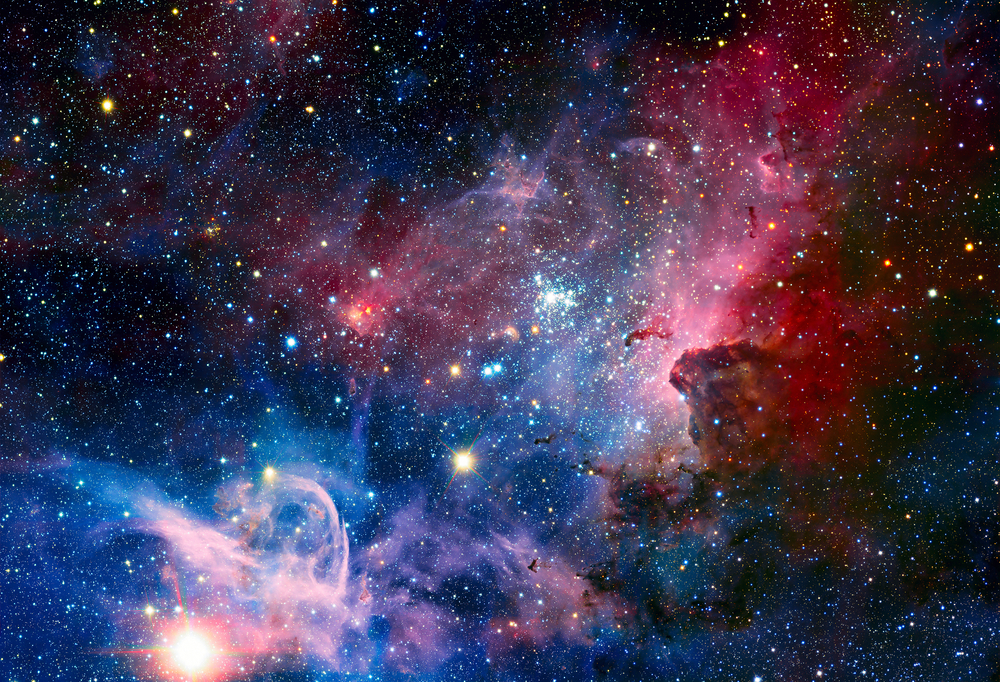
Astronomy in French: 89 Essential Words
When you first started studying French, you might have been starstruck.
You still love the language, of course. But now you’re starting to feel a little… attaché(e) à la Terre (Earthbound).
How can you make your love for French sparkle and shine as it once did?
That’s right: By learning how to talk about astronomy in French!
Grab your telescope and get ready to discover 89 essential French words related to astronomy as well as some key resources you can use to practice astronomy vocabulary!
Contents
- Le soleil — The Sun
- La lune — The Moon
- La terre — The Earth
- Le voyage spatial — Space Travel
- Les planètes — The Planets
- Les étoiles — The Stars
- Les constellations — The Constellations
- Les comètes et les nébuleuses — Comets and Nebulas
- How to Practice French Astronomy Terms
- And one more thing...
Download: This blog post is available as a convenient and portable PDF that you can take anywhere. Click here to get a copy. (Download)
Le soleil — The Sun
Pendant une tempête solaire, il y a des éruptions solaires et le vent solaire accélère. (During a solar storm, there are solar flares and the solar wind accelerates.)
| French | English |
|---|---|
| solaire | solar |
| le système solaire | solar system |
| une éruption solaire | solar flare |
| une tempête solaire | solar storm |
| une tache solaire | sunspot |
| un rayon de soleil | sunbeam |
| une éclipse de soleil | solar eclipse |
| le vent solaire | solar wind |
| l'héliosphère | heliosphere |
La lune — The Moon
Les phases de la lune comprennent la nouvelle lune, le croissant de lune et la pleine lune. (The phases of the moon include new moon, crescent moon and full moon.)
| French | English |
|---|---|
| croître | to wax |
| décroître | to wane |
| les phases de la lune | phases of the moon |
| le croissant de lune | crescent |
| la pleine lune | full moon |
| la nouvelle lune | new moon |
| lunaire | lunar |
| le cratère lunaire | lunar crater |
| une éclipse lunaire | lunar eclipse |
| une roche lunaire | moon rock |
| le clair de lune | moonlight |
La terre — The Earth
L’atmosphère de la terre est protégée par la couche d’ozone. (The Earth’s atmosphere is protected by the ozone layer.)
| French | English |
|---|---|
| terrestre | earthly |
| l'atmosphère | atmosphere |
| la stratosphère | stratosphere |
| la gravité | gravity |
| la couche d’ozone | ozone layer |
Le voyage spatial — Space Travel
Le spationaute portait une combinaison spatiale et un casque d’astronaute pendant sa sortie dans l’espace. (The astronaut wore a spacesuit and a space helmet during his space walk.)
| French | English |
|---|---|
| l’espace / le cosmos | outer space |
| la galaxie | galaxy |
| l’univers | universe |
| la Voie lactée | Milky Way |
| mettre quelque chose en orbite | to put something in orbit |
| une orbite terrestre basse | low Earth orbit |
| une orbite décroissante | decaying orbit |
| une fusée | rocket |
| un lancement de fusée | rocket launch |
| une navette spatiale | space shuttle |
| un astronaute | astronaut |
| une combinaison spatiale | space suit |
| un casque d’astronaute | space helmet |
| une sortie dans l’espace | space walk |
| la soute | payload |
| une station spatiale | space station |
| un complexe orbital | orbiting space station |
| le centre de contrôle | mission control |
| un satellite | satellite |
Les planètes — The Planets
Les planètes du Système Solaire sont Mercure, Vénus, Terre, Mars, Jupiter, Saturne, Uranus et Neptune; Pluton est considéré une planète naine. (The planets of the Solar System are Mercury, Venus, Earth, Mars, Jupiter, Saturn, Uranus and Neptune; Pluto is considered a dwarf planet.)
| French | English |
|---|---|
| Mercure | Mercury |
| Vénus | Venus |
| Terre | Earth |
| Mars | Mars |
| Jupiter | Jupiter |
| Saturne | Saturn |
| Uranus | Uranus |
| Neptune | Neptune |
| une planète naine | dwarf planet |
| Pluton | Pluto |
Les étoiles — The Stars
Une naine blanche est plus petite et moins lumineuse qu’un géant rouge. (A white dwarf is smaller and less bright than a red giant.)
| French | English |
|---|---|
| Sirius | Sirius, the Dog Star |
| l’Étoile polaire | Polaris, the North Star |
| une supernova | supernova |
| une étoile filante | shooting star |
| une étoile à neutrons | neutron star |
| un trou noir | black hole |
| une naine blanche | white dwarf |
| une naine rouge | red dwarf |
| un pulsar | pulsar |
| la supergéante | supergiant |
| la géante rouge | red giant |
| une étoile variable | variable star |
Les constellations — The Constellations
Les noms pour les constellations—comme le Chasseur, le Centaure et Pégase—viennent souvent de la mythologie. (Names for constellations—like Orion, Centaurus and Pegasus—often come from mythology.)
| French | English |
|---|---|
| la Grande Ourse | Ursa Major |
| le Grand Chien | Canis Major |
| le Petit Chien | Canis Minor |
| Cassiopée | Cassiopeia |
| le Centaure | Centaurus |
| le Chasseur | Orion (the Hunter) |
| la Balance | Libra (the Scales) |
| Pégase | Pegasus (the Horse) |
| le Poisson | Pisces (the Fish) |
| le Sagittaire | Sagittarius |
| le Taureau | Taurus (the Bull) |
| la Grande Casserole | the Big Dipper |
| la Petite Casserole | the Little Dipper |
Les comètes et les nébuleuses — Comets and Nebulas
Grâce aux nuages gazeux en eux, les nébuleuses comme la nébuleuse du Crabe et la nébuleuse de la Tête de Cheval sont souvent vivement colorées. (Thanks to the gas clouds within them, nebulae such as the Crab Nebula and the Horsehead Nebula are often brightly colored.)
| French | English |
|---|---|
| une comète | comet |
| la queue de la comète | comet's tail |
| un amas ouvert | open cluster |
| un nuage gazeux | gas cloud |
| une nébuleuse | nebula |
| la nébuleuse de la Tête de Cheval | Horsehead Nebula |
| la nébuleuse du Crabe | Crab Nebula |
| un astéroïde | asteroid |
| une ceinture d’astéroïde | asteroid belt |
| une singularité gravitationnelle | gravitational singularity |
How to Practice French Astronomy Terms
When it comes to practicing your French astronomy vocab, you won’t be left in a void! Here are a few resources you can use to keep the stars aligned.
Celestial poetry
Explore the universe in the measured verse of renowned French poets like Victor Hugo, Paul Verlaine and Théodore Faullain de Banville.
Suggested reading:
- “Saturne” (“Saturn”) and “La Voie lactée” (“The Milky Way”) by Victor Hugo.
- “La lune blanche…” (“The White Moon”) and “Clair de lune” (“Moonlight”) by Paul Verlaine.
La science-fiction (Science fiction)
Try out your knowledge of astronomy in French while enjoying the works of science-fiction luminaries like Jules Verne and Pierre Boulle.
Suggested reading:
- “De la terre à la lune” (“From the Earth to the Moon”) and its sequel, “Autour de la lune” (“Around the Moon”) by Jules Verne. A Steampunk dream duo of tales about the first (fictional) moon landing.
- “Voyage à Vénus” (“Voyage to Venus”) by Archille Eyraud. Journey by rocket ship to an ideal Venusian society.
- “La Planète des singes” (“Planet of the Apes”) by Pierre Boulle. From the writer of “Le Pont de la rivière Kwai” (“The Bridge on the River Kwai”) comes a classic tale of space travel and adventure.
Suggested viewing:
- “Missions,” a French science-fiction TV series about a crew voyaging to Mars.
Follow French astronomy
You can also develop a robust knowledge of French astronomical terms by using original sources to learn more about both historical and contemporary French astronomers:
- Charles Messier (1730-1817): Discovered 13 comets and 40 nebulae, recorded in le Catalogue de Messier (the Messier Catalogue).
- Pierre-Simon Laplace (1749-1827): Theorized black holes and calculated planetary orbits; wrote “Le Traité de mécanique céleste” (“Treatise on Celestial Mechanics”).
- André-Louis Danjon (1890-1967): Designed the Danjon astrolabe to more accurately measure heavenly bodies and their motion; devised the Danjon Scale of Lunar Eclipse Brightness.
- Audouin Charles Dollfus (1924-2010): Discovered Janus, one of the moons of Saturn.
Stargaze à la française (the French way)
If you’re already a stargazer, you can use your hobby to increase fluency. There are numerous guides for les observations célestes (celestial observations), such as “Petit guide du ciel” (“Little Sky Guide”) by Bernard Pellequer or “Guide de l’astronome débutant” (“Beginning Astronomer’s Guide”) by Vincent Jean Victor.
These YouTube channels will also guide your studies of l’astronomie (astronomy):
- À Ciel Ouvert (To the Open Sky): A short series of videos to introduce concepts such as lunar eclipses and the rotation of the Earth.
- Astronomie Pratique (Practical Astronomy): Tips for calibrating and using les jumelles (binoculars) and un télescope (a telescope) for stargazing, along with astrophotography tips and information about constellations and stellar phenomena.
L’ultime frontière (the final frontier)
Follow news stories from CNES, the Centre National d’Études Spatiales (France’s National Center for Space Studies). The site includes a library of short videos on various topics, such as Mars exploration.
Watch an interview with French spationaute (astronaut) Thomas Pesquet, who has worked and lived aboard la Station Spatiale Internationale (the International Space Station).
To see some of these terms used in context, you could also try searching for them on an immersive language learning program like FluentU.
FluentU takes authentic videos—like music videos, movie trailers, news and inspiring talks—and turns them into personalized language learning lessons.
You can try FluentU for free for 2 weeks. Check out the website or download the iOS app or Android app.
P.S. Click here to take advantage of our current sale! (Expires at the end of this month.)
Equipped with these terms for talking about astronomy in French, tu ne seras jamais perdu dans l’espace (you’ll never be lost in space)!
Download: This blog post is available as a convenient and portable PDF that you can take anywhere. Click here to get a copy. (Download)
And one more thing...
If you like learning French vocabulary on your own time and from the comfort of your smart device, then I'd be remiss to not tell you about FluentU.
Other sites use scripted content. FluentU uses a natural approach that helps you ease into the French language and culture over time. You’ll learn French as it’s actually spoken by real people.
FluentU has a wide variety of great content, like interviews and web series, as you can see here:

FluentU brings native videos within reach with interactive subtitles.
You can tap on any word to look it up instantly. Every definition has examples that have been written to help you understand how the word is used.

For example, if you tap on the word "crois," you'll see this:

Practice and reinforce all the vocabulary you've learned in a given video with FluentU's adaptive quizzes. Swipe left or right to see more examples for the word you’re learning and play the mini-games found in the dynamic flashcards, like "fill in the blank."

As you study, FluentU tracks the vocabulary that you’re learning and uses this information to give you a 100% personalized experience.
It gives you extra practice with difficult words—and reminds you when it’s time to review what you’ve learned.
Start using the FluentU website on your computer or tablet or, better yet, download the FluentU app from the iTunes or Google Play store. Click here to take advantage of our current sale! (Expires at the end of this month.)
